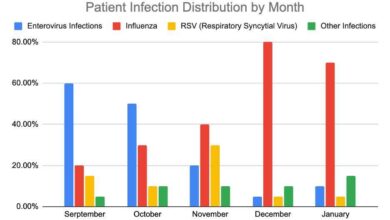Experts Talk: Anna White, Sensory Occupational Therapist from The LightHouse Arabia, Discusses Mental Health and Child Development

White talks about identifying delaying millstones, on starting the support from home and top tips for parents and guardians
Dubai Diaries: Let’s start by focusing on need to see a doctor. Why and when is it important to see a doctor if we feel our children need help?

Anna White: Let’s start by asking the following question: If your child had a delayed motor milestone or a physical injury, would you wait to book an appointment to see your family doctor? Often people believe that if they can’t see the problem, it’s not there.
Suppose we don’t acknowledge or allow our children to receive support for their mental health concerns. In that case, we are essentially putting our children at an increased risk of developing a mental health illness, providing a barrier to their physical, psychological, and social development.
Children rely on their parents to be attuned and notice changes in their behavior so that they can prioritize their mental health. Any significant changes in a child’s behavior should alert the adult to the fact that the child may be struggling emotionally. Symptoms may include mood changes, sleep or eating patterns, anxiety, maladaptive behaviors (i.e. regressive/aggressive/withdrawn behavior) or social concerns.
We all have mental health, just like we all have physical health, so if you are concerned about your child’s emotional health, you should check in with a mental health professional to help you understand what’s going on below the surface.
DD: Children with special needs often avoid social gatherings and mixing up with other children. What can parents do to provide maximum support?
AW: Start the learning at home
Before we can expect our children to be social butterflies in the outside world, we must teach them the skills at home. This might include practicing waiting tolerance, sharing skills, listening skills, following directions and respecting personal space with siblings or caregivers. Remember that play doesn’t come naturally to all children, so providing opportunities to explore and learn at home can break down social skills into smaller, more achievable components so that your child can be set up for success.
Set up successful playdates
Start by scheduling smaller get-togethers with children who have similar interests or children that have a little more patience and flexibility. Educate other parents and children how your child best learns. Remember, awareness creates acceptance.
Set expectations clear and have a predictable routine
Preparation is a critical ingredient in successful interactions with others. Help your child know what to expect and reduce uncertainties by creating predictable routines and rituals. For example, if your child is going to play with a friend at the park, you might say, “First, we will go to the park to play on the swings, then have a snack, and after this, you will both play with your puzzles”.
Remember that there is no such thing as a perfect playdate
For typically developing children and children with special needs, they are evolving through play. When developing a new skill, we all make mistakes, but there is always a window of opportunity. Provide supervision but at the same time also allow your child to problem solve and build resilience as they play.
DD: Mood swings is another common behavioral tool child use to show anxiety or stress. How can parents deal with mood swings?
AW: Dan Siegel, the author of The Whole Brain Child, developed a strategy for parents to use amid big emotions, called “Name It, to Tame It.” The idea is to help your child name the overwhelming feeling through words. Before parents can help their child in the problem-solving phase, they need to help their child label their emotions. If your child is non-verbal or cannot identify their feelings, parents can use visuals or help their child name the feeling. For example, if your child is feeling anxious about a new activity, you might say: “It sounds like you are feeling nervous about the birthday party. Let’s talk about why you are feeling this way.”
DD: What kind of support children with special needs need at school and in society? How can parents involve the school and the society in helping their children remove different inhibitors and develop?
AW: Remember that the more the school knows about your child’s strengths and challenges, the more they can create a learning environment that supports inclusion and understanding.
As a parent, you may request an evaluation of your child to determine their cognitive abilities and learning style and recommended school accommodations. The evaluation may include psychological and educational testing, a speech and language assessment, and an occupational therapy assessment.
DD: As per your expertise, what top 3 tips would you give to the parents so that they can help their children at home?
AW: Educate yourself
Remember that you know your child better than anyone else, and your participation in the decision-making process is crucial. Educate yourself on your child’s diagnosis and behavioral strategies that best support your child. Depending on your child’s needs, take related training courses and seek support from a specialist to guide you through the process.
Establish a support system
Seek guidance and support from other parents who are walking a similar path. Support networks can help you find professions, share strategies and learn from others who can relate to your experience.
Ask for help
Remember that asking for help is a sign of strength, not weakness. You cannot pour from an empty cup- you have to look after yourself before you can support your child. Reach out to professionals who can stand by your side on this journey.




